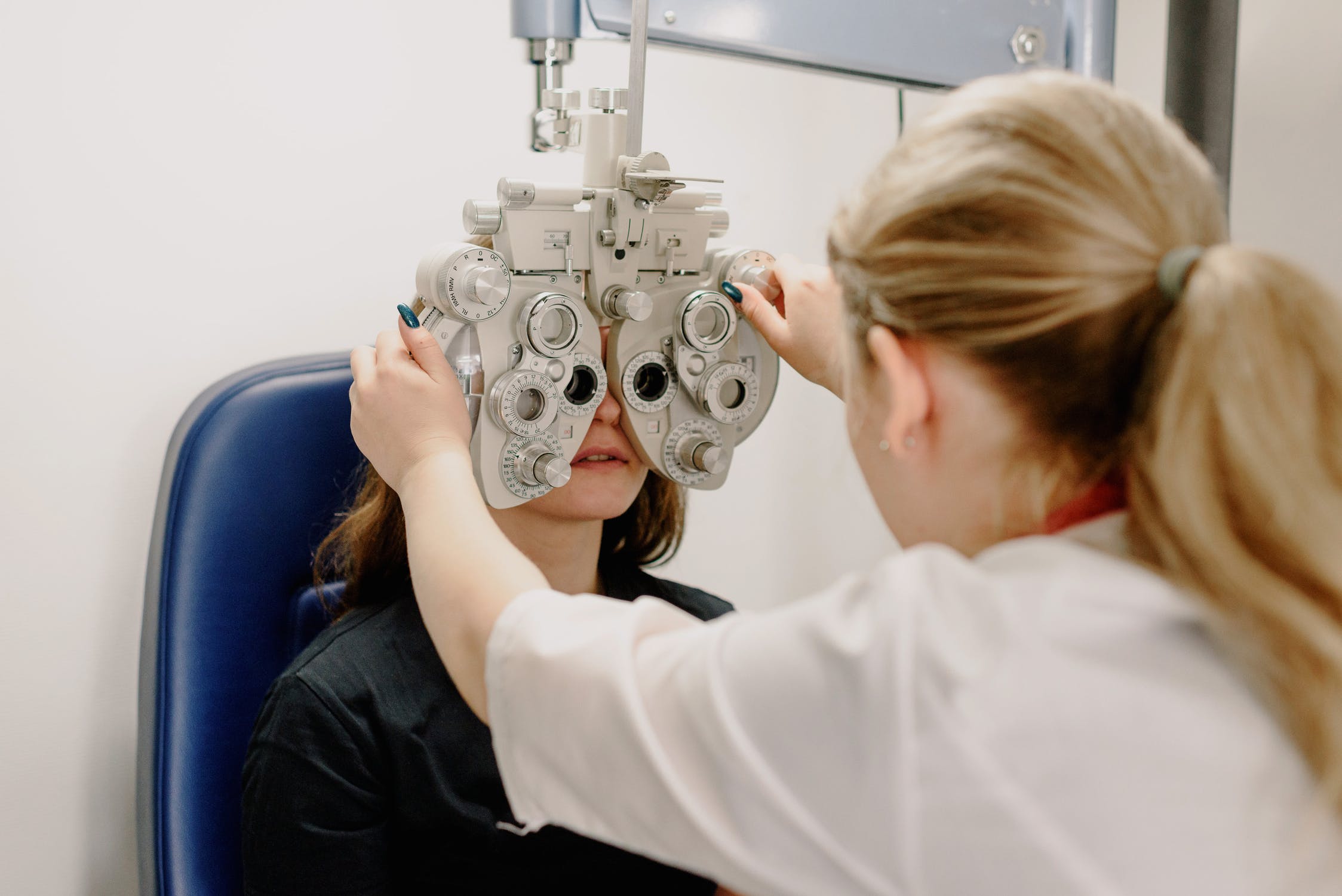
Reduced access at private equity-acquired ophthalmology practices
May 23, 2025
New Health Affairs study on PE and ophthalmology practices
A recent study adds to evidence suggesting that private equity’s short-term profit incentives contribute to reduced healthcare access for patients in vulnerable populations.
In May, Health Affairs published new research examining private equity ownership of physician practices. In particular, the study quantified private equity acquisitions of retina practices (i.e., ophthalmology practices that perform retinal detachment surgery) from 2014 to 2022, and changes in outcomes after acquisition by private equity of those practices.[1]
The authors describe retinal detachment surgery as “a key example of an emergency condition for which disease burden and profitability diverge.” Emergency surgery is often required within days of retinal detachment to prevent irreversible vision loss, and retinal detachment surgery has a cost structure that often exceeds federal reimbursement rates.[2]
This gap between surgery cost and reimbursement, “coupled with PE’s focus on short-term profitability,” according to the authors, “may reduce the provision of procedures for which disease complexity and profitability diverge.”[3]
The article’s closing notes that burdens of retinal detachment and related eye conditions are projected to grow because of an aging population and the increasing incidence of diabetes. In response, the authors call for increased oversight, including ownership transparency, greater antitrust enforcement, and strengthened quality reporting.[4]
Methodology
The study was conducted by identifying private equity acquisitions in ophthalmology, finding physicians affiliated with those acquisitions, and linking physician information to a 20 percent sample of Medicare fee-for-service claims data. The researchers then conducted statistical analyses to examine the prevalence of private equity acquisitions and their distribution, and to examine changes to the number of surgeries per retinal specialist.[5]
Findings
The findings count 239 total practice acquisitions in the nine-year period from 2014 through 2022, which included 1,860 affiliated ophthalmologists, of whom 535 were retina specialists.[6]
As of 2022, retina specialists were affiliated with private equity-acquired practices in 28 states. Among these states, the average share of retina specialists affiliated with private equity was 29.4 percent. In nine states, more than one-third of retina specialists were affiliated with private equity. In four states – Minnesota, Maryland, Michigan, and Utah – more than half of all retina specialists were affiliated with private equity.[7]
Additionally, the researchers found that after being acquired by private equity, ophthalmology practices demonstrated a consistent decrease in retinal detachment surgeries per physician, averaging a 19.6 percent decrease through three years post-acquisition.[8]
According to the authors, the study “provides nuanced evidence of another strategy that PE firms may deploy to increase profitability—that is, by paring down services or procedures that may be less profitable.” They note that previous research has found similar behavior (i.e., decreasing the provision of unprofitable services) in hospitals acquired by private equity.[9]
Previous research on PE and ophthalmology
The new research also adds to existing evidence that private equity ownership of physician practices can expose eye care patients to increased risks.
In September 2022, JAMA Internal Medicine published a study examined private equity acquisitions in ophthalmology, gastroenterology, and dermatology, finding private equity-owned practices saw a rise in new patients and more frequent returns by older patients. The study also found that physician practices increased charges per claim by an average of $71 (20.2 percent) in the eight quarters following private equity acquisition.[10]
That same month, an analysis by KFF Health News found that private equity firms have invested in the offices of doctors who prescribe the two most common macular degeneration eye drugs at high rates—“meaning the doctors are likely seeing high volumes of patients and thus are more profitable.” One observer told KFF that doctors acquired by private equity could potentially change their prescription habits from the cheaper drug to the more expensive one.[11]
PE and ophthalmology more recently
The authors of the recent Health Affairs article note that one limitation they faced was that Medicare claims are only available through 2022, “precluding analysis of recent acquisitions, subsequent buyouts, the COVID-19 pandemic, and other trends that might have affected observed trends.”[12]
But while data on recent outcomes is still yet-to-be-seen, there are clear incentives for private equity to continue acquiring ophthalmology practices. A recent article in the American Journal of Ophthalmology stated that this area appeals to private equity “because of high procedural volumes, fragmented private practices, opportunities for real estate ownership, and an aging population in need of eye care.”[13]
Private equity firms have indeed continued to acquire eye care practices in recent years. There were at least 35 private equity-backed eye care deals in 2023 and 18 in 2024, according to a recent report from PESP, making eye care the most active physician specialty for private equity dealmakers in recent years.[14]
[1] Singh, Yashaswini, Geronimo Bejarano Cardenas, Hamid Torabzadeh, Christopher M. Whaley, and Durga Borkar. “Private Equity–Owned Physician Practices Decreased Access To Retinal Detachment Surgery, 2014–22.” Health Affairs 44, no. 5 (May 2025): 589–96. https://doi.org/10.1377/hlthaff.2024.01204.
[2]Id. At 590.
[3]Ibid.
[4]Id. at 594-5.
[5]Id. at 590-1.
[6]Id. at 592.
[7]Ibid.
[8]Ibid.
[9]Id. at 589.
[10] Singh, Yashaswini, Zirui Song, Daniel Polsky, Joseph D. Bruch, and Jane M. Zhu. “Association of Private Equity Acquisition of Physician Practices With Changes in Health Care Spending and Utilization.” JAMA Health Forum 3, no. 9 (September 2, 2022): e222886. https://doi.org/10.1001/jamahealthforum.2022.2886.
[11] Weber, Lauren. “Private Equity Sees the Billions in Eye Care as Firms Target High-Profit Procedures.” KFF Health News, September 19, 2022. https://kffhealthnews.org/news/article/private-equity-ophthalmology-eye-care-high-profit-procedures/.
[12] Singh, Yashaswini, Geronimo Bejarano Cardenas, Hamid Torabzadeh, Christopher M. Whaley, and Durga Borkar. 2025. “Private Equity–Owned Physician Practices Decreased Access To Retinal Detachment Surgery, 2014–22.” Health Affairs 44 (5): 589–96. https://doi.org/10.1377/hlthaff.2024.01204, at 592.
[13] Groothoff, Jonathan D., and David J. Browning. “Assessing Private Equity Involvement in Ophthalmology: Parallels With the Past, Concerns for the Future.” American Journal of Ophthalmology 270 (February 1, 2025): 245–51. https://doi.org/10.1016/j.ajo.2024.09.026.
[14] Private Equity Stakeholder Project PESP. “Private Equity in U.S. Healthcare: Trends in 2023 Deal Activity.” Accessed May 15, 2025. https://pestakeholder.org/private-equity-healthcare-2023-trends/; “Private Equity Healthcare Deals: 2024 in Review.” Accessed May 15, 2025. https://pestakeholder.org/reports/healthcare-deals-2024-in-review/.
